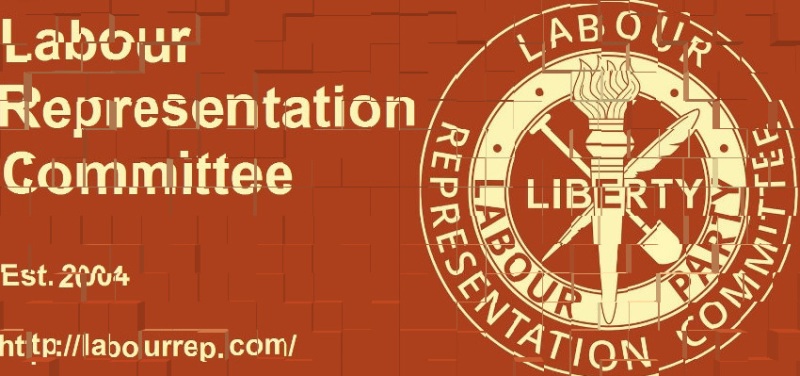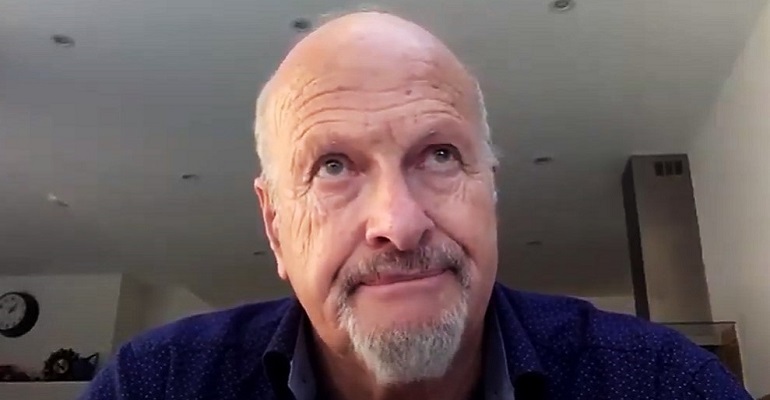Its response to the Ukraine war shows the official Labour ‘left’ is sinking ever further into the mire, writes James Harvey
Sir Keir Starmer is having a ‘good war’, but, then again, we would expect nothing less from this trusted servant of British imperialism and its American masters.
For months Sir Keir has been setting out his stall as an alternative prime minister and a safe, reliable pair of hands, who can be trusted to enter Downing Street and ‘govern’ in the interests of capitalism. Defence of Nato and the interests of US imperialism are central to the British state, and in his job application Starmer has made his support for this strategic status quo a central theme. Until last autumn this had something of a platonic character: true, it was politically and symbolically important in demonstrating loyalty to the state, and a good way of drawing a clear line between himself and his notoriously unreliable predecessor, Jeremy Corbyn, but there was no immediate political crisis that necessitated a choice.
Then came Ukraine and Sir Keir relished his opportunity to trumpet his loyalty to Nato and show that, when called upon, he could take an even harder line than the most rightwing jingoists on the Tory back benches. Whether it was calling for even tougher sanctions or standing fully behind the Ukrainian state, Starmer was always on hand to provide the statesmanlike rhetoric and necessary support for the Nato line.[1] As war fever swept the House of Commons and the media, he enthusiastically joined in and, like the rest of the capitalist class, was willing to fight to the last Ukrainian in defence of western values and freedom against the Russian autocracy.
If Sir Keir acted his part to perfection, the official Labour left too has been playing its own rather ignominious role during this crisis. If truth is the first casualty of war, for the parliamentary left principled politics comes a very close second. Just when you thought what passes for a left wing in the Labour Party could not fall any lower, leading left MPs sink even further into the mire and prostrate themselves before the pro-imperialist leadership of Starmer.
Apart from the unashamedly pro-Nato Paul Mason, the openly pro-imperialist Alliance for Workers’ Liberty, the confused Mandelites of Anti-Capitalist Resistance and the fellow-travellers of rightwing Ukrainian nationalism in the Ukrainian Solidarity Campaign, the dominant moods on the left are a species of social pacifism, reflected in the statements of the Stop the War Coalition. These oppose the war, criticise Nato expansion and urge diplomacy and negotiation as a solution to the crisis. In line with the popular-frontism of its leadership, they seek to build a mass movement in alliance with progressives and other bien pensants of the liberal bourgeoisie.[2] Hence, they stick to righteous indignation at the horrors of war and avoid the complexities of great-power politics. Above all, they do not link the struggle against war to the capitalist system that spawns it or pose a specifically independent working class politics that links fundamental questions of war, peace and the importance of fighting the real enemy – the ruling class at home.
It was to a statement of this type of social pacifism that 11 Labour MPs (plus Jeremy Corbyn and Claudia Webbe) added their names on the eve of the war – only to retract them when Starmer threatened to withdraw the whip or even possibly expel them from the party for daring to be even mildly critical of Nato![3] This was followed by an even more cowardly retreat, when John McDonnell and Diane Abbott pulled out of speaking at an StWC meeting following yet more reported threats from Starmer.[4] To compound McDonnell’s cowardice, it appears from reports that Starmer only said that “ the party would be looking closely at what was said about Nato and the war in Ukraine” rather than pronouncing an explicit anathema on McDonnell’s attendance per se. However, McDonnell has always been good at sniffing the wind and knew exactly what Starmer expected of him.[5]
Abbott went even further in her abject recantation and gave explicit backing to Nato as a “defensive alliance”. Having a debate around Nato strategy is one thing,” she said, but “attacking Nato is another. Everybody in the Labour Party supports a defensive alliance” (my emphasis).[6]
Sir Keir has made Stop the War a particularly symbolic and political target, and his attacks on this social-pacifist campaign have grown as the crisis has unfolded.[7] As he drove the point home and denounced even the muted critical politics of the Labour left, these bold leaders simply collapsed and grovelled at the leadership’s bidding.
Betrayal
This betrayal by what remains of the official Labour left is all the more stark because of the long histories of McDonnell and Abbott in opposition to Blair’s imperialist wars, and their personal connections with Jeremy Corbyn in those campaigns. In this instance the wounds and the sense of treachery truly are personal. Given McDonnell’s role in conniving at the witch-hunt and attempting to placate the Labour right during the Corbyn era, we should not be at all surprised by his abject surrender to Starmer and his vow of silence, when it comes to criticism of Nato and the strategy of the British state. Moreover, he continues to support the USC and thus give a ‘left’ cover to pro-Nato politics. So bold John is now effectively amongst the cheerleaders for greater support for the Ukrainian state and is laying the ground for even more direct intervention in the war. But, before we pass on to the bigger picture, let us consider McDonnell’s specific defence of his recantation of the StWC statement and withdrawal from the protest meeting. Beginning with the argument that “people are dying on the streets of Ukrainian cities”, McDonnell goes on to say:
This is not the time to be distracted by political arguments here. Now is the time to unite and do all we can to assist the people of Ukraine desperately seeking asylum and to do all we can to bring about peace. Nothing is more important at this time. Nothing should distract us from that. So I won’t feed into that distraction by going tonight.
I do think many Labour Party members will want clarity over the Labour Party’s attitude to attending demonstrations organised by Stop the War or by them jointly with other groups. My final comment is that, in the wider context of securing a socialist Labour government, and possibly inspired by my team Liverpool at Wembley at the weekend, I do believe it’s important for socialists to stay on the pitch for as long as it takes [my emphasis throughout].[8]
This rather brief statement reveals the utter bankruptcy and rotten core at the heart of the official Labour left, and the complete lack of any authentic or determined leadership amongst its MPs and trade union bureaucrats. As the official Labour left continues its demoralisation and disintegration, this is the type of compromising ‘leadership’ that remains behind to further disillusion and disorientate honest left activists. Now is not the time to be distracted by political arguments!
As if questions of war, peace, imperialism and great-power strategic rivalry are not issues for political argument which demand a socialist, working class response to the war in Ukraine. Rather than develop our own politics and make the voice of independent proletarian internationalism heard amidst the clamour of war, demands by the likes of McDonnell that we unite and do all we can for peace really mean that workers in each country are being asked to effectively line up behind their ruling class.
The reasons why McDonnell and co fail this vital test is not just moral cowardice or careerism, although they have their part in these betrayals of the official Labour left. At the root of these politics is the original sin of the Labour left since the early 20th century: namely compromise with capitalism and a lack of confidence that the working class can rise to the challenges of both war and peace, and overthrow capitalism internationally. The official Labour left’s road to socialism lies not through the conscious self-emancipation of the working class, but through the parliamentary road of “ socialist Labour governments” and gradual modifications of capitalism. Any hint of principled politics is jettisoned in subordination to that goal, which requires endless compromise with the pro-capitalist Labour right and constant retreat on even the semblance of socialist politics.
War and peace are fundamental questions for society and the working class internationally. Wars have historically exposed the nature of imperialist and great-power rivalry, and the reality of class society. The war in Ukraine is no exception, showing the strategic competition between the US hegemon and its Nato clients, and a regional power, Russia (and, behind it, a major challenger to US hegemony, China).
The voice of the left and independent working class politics is at its weakest since the 19th century, but that does not mean we must meekly surrender to capitalism and imperialism like the official Labour left. Our forces are as yet too weak to turn this colonial war by proxy into a civil war of workers against the bourgeoisie, but we must continue to adhere to that programme of independent working class action.
Unlike traitors such as John McDonnell, for the genuine partisans of socialist and internationalist politics the main enemy remains at home. In time of war there is no other position: here we stand – we can do no other
[1]. www.theguardian.com/world/2022/mar/08/zelenskiy-invokes-churchill-calls-on-uk-do-more-help-ukraine.
[2]. morningstaronline.co.uk/article/being-anti-war-does-not-make-us-apologists-enemy-or-anyone-else.
[3]. www.theguardian.com/politics/2022/feb/24/labour-mps-drop-backing-for-statement-criticising-nato-after-starmer-warning.
[4]. www.theguardian.com/politics/2022/mar/02/john-mcdonnell-and-diane-abbott-pull-out-of-stop-the-war-rally.
[5]. labourlist.org/2022/03/exclusive-john-mcdonnell-will-not-attend-stop-the-war-event.
[6]. labourlist.org/2022/03/diane-abbott-we-could-even-support-stop-the-war-under-tony-blair.
[7]. www.newstatesman.com/comment/2022/03/by-repudiating-stop-the-war-keir-starmer-has-reclaimed-labours-true-history; www.theguardian.com/politics/2022/feb/10/keir-starmer-says-stop-the-war-coalition-gives-help-to-authoritarians-like-putin.
[8]. labourlist.org/2022/03/exclusive-john-mcdonnell-will-not-attend-stop-the-war-event.



